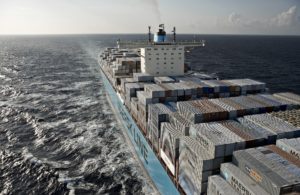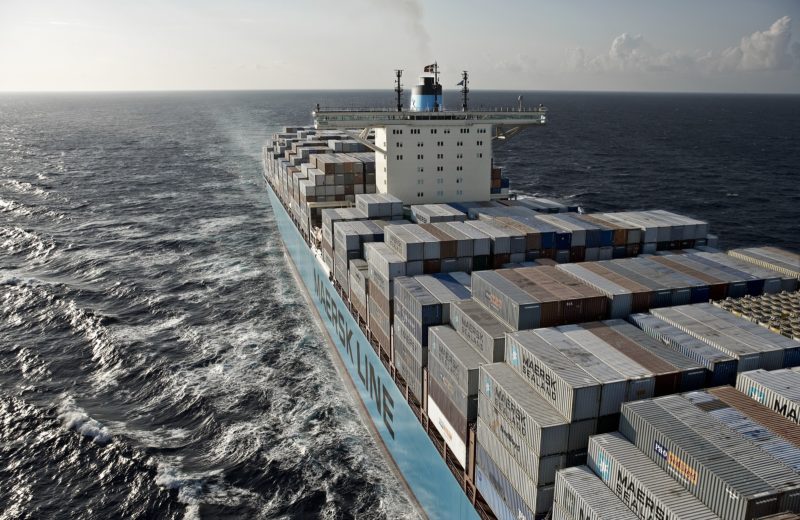
(Story updated on July 2, 5:27 pm)
Some Philippine transport industry stakeholders told PortCalls they are worried over potential congestion in some ports if the problem with the cyber attack on Maersk Line is not resolved soon.
More than a dozen vessels of Maersk and another unit, MCC, are scheduled to arrive at various Philippine ports during the first week of July, based on their regular port rotations. One has already apparently arrived at the Mindanao International Container Terminal in Misamis Oriental but the cargoes carried by the vessel cannot be cleared by the Bureau of Customs (BOC) without a cargo manifest, which is submitted during customs boarding formalities.
The electronic transmission has also been disrupted following the cyber attack on many companies, including Maersk, last June 27, which has led to PCs and data being inaccessible due to ransomware Petya.
Apart from Misamis Oriental, Maersk and MCC vessels regularly call the Manila International Container Terminal, South Harbor, Batangas Container Terminal, Subic, Davao, General Santos, and Cebu.
It must be noted that some international carriers also co-load with Maersk and MCC vessels. Shipments carried by those lines are also affected.
The latest bulletin from A.P. Moller -Maersk dated June 30 said the company expects “to return to a close to normal environment by Monday, July 3rd.
“Progress is being made towards recovery and a more normalised state of business is expected by Monday, however it will take longer to restore all applications and workstations.
“Cargo is being moved in and out of ports almost everywhere around the world. Almost all ports within the APM Terminals global portfolio are operational. We are pleased to report that since yesterday, we have been able to reestablish business in our terminals in Algeciras, Tangier, Callao Lima, Mumbai, Itajai and Buenos Aires.”
In the Philippines, sources said clearance of cargoes on Maersk Line and MCC vessels will be adversely affected by the cyber attack. As of this writing, there still is no official advise from BOC on how the cargoes will be cleared.
The absence of an electronic cargo manifest triggers a domino effect on import cargo clearance by the BOC. Without a manifest, the customs broker cannot lodge import entry declarations, and import duties taxes and customs charges cannot be paid.
Freight forwarders cannot process shipments as well.
As a contingency procedure, port operators can resort to manually recording container discharge information. But even if this is done and containers are discharged from the vessel, the cargo still cannot be cleared by the BOC without a manifest.
A statement from Maersk’s Asia-Pacific office sent to PortCalls on July 2 said, “At this stage, Maersk Line and MCC vessels are operating with only minor delays. Both Maersk Line and MCC are able to load and discharge cargo as planned.
“Maersk Line and MCC are grateful for the support the Philippine government and our customers have shown us. We are working closely with various authorities to minimise the disruption to our customers following the Petya cyber attack.
“Where ship manifests are available, we can proceed with the manual release of cargo. We will continue to work tirelessly to ensure minimal disruption to our customers.”
On its June 30 global advise, Maersk Line said it “continues to take bookings through INTTRA, EDI and local manual processes. Vessels remain fully operational and cargo in transit is being handled close to normal. We expect to reactivate normal booking channels on Monday and be able to process all bookings.
“All other business units within A.P. Moeller-Maersk has continued operations.
“Focus remains dedicated to ensuring the best possible business continuity.”





